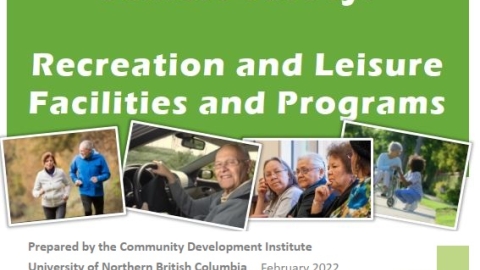 In many areas of non-metropolitan British Columbia, the state of housing has become a key constraint on economic and community development. Our previous housing research has pointed to a number of long-standing as well as emerging issues and challenges related to housing in non-metropolitan BC, and the resulting implications. This report highlights one of these issues: housing affordability.
In many areas of non-metropolitan British Columbia, the state of housing has become a key constraint on economic and community development. Our previous housing research has pointed to a number of long-standing as well as emerging issues and challenges related to housing in non-metropolitan BC, and the resulting implications. This report highlights one of these issues: housing affordability.
At the community level, attention to housing affordability ensures that the community can attract and retain the workforce and other residents it needs to support broad economic activity and general social well-being. Non-metropolitan communities and households are particularly at risk for issues around housing affordability because much of the housing stock in these communities is old, not energy efficient, and in need of major repair. In addition, there is a mismatch between household size and housing size, suggesting that many households may be living in, and paying for, homes that are larger than they want or need.
This report features 40 Community Profiles, including our sample of non-metropolitan BC communities located in every region of the province and their average. Each of these profiles includes information on income distribution, household income in the context of shelter costs, and homeowner and renter housing cost vulnerability rates. Findings from this report include the following:
- In over two-thirds fo the sample, shelter cost increases for renters exceeded income increases.
- In one-third of the sample, shelter cost increases for homeowners exceeded income increases.
- In one-third of the sample, shelter costs for renter households exceeded shelter costs for owners.
The report structure allows each community to extract information that is relevant for them and their region and use it as a tool for analysis, strategic planning, and targeted action. The data is collected from the 2021 Census Program. A 2016 Census Data Edition accompanies the report to provide some recent, pre-COVID, historical context.
Be sure to visit our Housing Information Portal for more on housing in non-metropolitan BC and Canada.

 In many areas of non-metropolitan British Columbia, the state of housing has become a key constraint on economic and community development. Our previous housing research has pointed to a number of long-standing as well as emerging issues and challenges related to housing in non-metropolitan BC, and the resulting implications. This report highlights one of these issues: housing affordability.
In many areas of non-metropolitan British Columbia, the state of housing has become a key constraint on economic and community development. Our previous housing research has pointed to a number of long-standing as well as emerging issues and challenges related to housing in non-metropolitan BC, and the resulting implications. This report highlights one of these issues: housing affordability. The CDI has been gathering and analyzing housing data for non-metropolitan BC since 2014. Using Census data, our research has tracked changes to population demographics and housing stock in 39 non-metropolitan communities across the province.
The CDI has been gathering and analyzing housing data for non-metropolitan BC since 2014. Using Census data, our research has tracked changes to population demographics and housing stock in 39 non-metropolitan communities across the province. This Seniors Profile is the second, updated, profile prepared as part of the New Horizons project undertaken by the Mackenzie Campus of the College of New Caledonia in collaboration with community partners. The purpose of this profile is to collate the most recent available information to create a snapshot of the senior population in the community, as well as some historical developments. This is a tool to help the community understand seniors' situations and make informed decisions. This profile includes mainly data from Statistics Canada's 2021 Census Program.
This Seniors Profile is the second, updated, profile prepared as part of the New Horizons project undertaken by the Mackenzie Campus of the College of New Caledonia in collaboration with community partners. The purpose of this profile is to collate the most recent available information to create a snapshot of the senior population in the community, as well as some historical developments. This is a tool to help the community understand seniors' situations and make informed decisions. This profile includes mainly data from Statistics Canada's 2021 Census Program.
